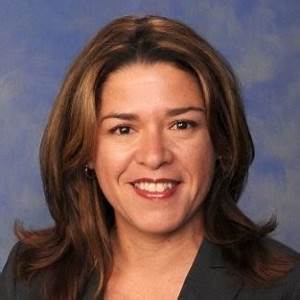An interview with Susy Torriente, Jacobs Engineering Group
As part of its series “The Business of Climate Change,” The Invading Sea recently spoke with Susy Torriente, global leader for city resilience, with the international technical professional services firm Jacobs Engineering Group. She is the former chief resiliency officer and assistant city manager of the city of Miami Beach. “The Business of Climate Change” highlights the climate views of business men and women throughout the state.
Here are some of the highlights from the interview.
You’ve served in leadership roles in South Florida government and now you’re on the private business side of things with Jacobs Engineering. Tell me a little bit about your experience in these positions and what you do in your current role with Jacobs.

I joined Jacobs at the beginning of the year. I sit in strategic consulting and I’m part of a team in solutions and technology. We work in the space of climate change and resilience planning, and we work across the entire organization bringing value to clients and client cities, so I was very interested in coming to the private sector and taking my experience from government, and really kind of replicating it and tackling these issues in cities or across the globe now.
How has climate change affected the areas where you’ve worked and what environmental issues have you dealt with there?
My experience in climate-related work was 29 years in local government in South Florida and the last 10 years really focusing on climate adaptation, because of the need— because of seeing flooding and, of course, seeing rising seas.
Now that I’m on the private sector side in Central Florida, the issues of climate are pressing but they’re different. While in South Florida you saw a lot of work and climate adaptation and stormwater and raising roads in Miami Beach to deal with flooding, in Central Florida the leadership here is focused more on climate mitigation, reducing greenhouse gases, reducing air pollution, and things like that.
What does Jacobs Engineering do to address the effects of the changing climate and sea-level rise in Florida?

Here in Florida, we’ve done work up and down the coast. We recently completed a water resilience strategy for the Jacksonville electric utility. Jacobs has a contract in my former hometown, Miami Beach, for integrated water management.
Also, in Miami-Dade County, Jacobs has a huge presence there in the ocean outfall program. We’re engineers in the cities of Cocoa Beach, St. Pete, Tampa, and I’m starting a new project down in Key West now, helping them create a post-disaster recovery plan.
And just this year, we worked on Tyndall Air Force Base. As you may recall, it was devastated by Hurricane Michael back in 2018, and the base made a decision to rebuild and labeled it “the installation of the future.”
What should the Florida Legislature be doing to help Florida businesses address the effects of climate change?
What I’ve noticed over the last few years and being in local government is that local governments were really the leaders and facing the harsh realities of flooding and sea-level rise and things like that. I think what the Florida Legislature can think about doing is recreating that position of chief resilience officer that Florida had for a good six months, and then creating a statewide resilience strategy.
There’s so many pockets of regional collaboration all over the state—in South Florida, here in Central Florida, and now developing up in the Jacksonville area and in the Tampa area. The state could be a partner in that weaving together and coming up with a statewide strategy and then tying funding opportunities and grants to those projects that build designs.
Do you have any advice for other businesses, both large and small ones, and even counties and municipalities, for how they can create their own response to climate change?
My advice is to start. It doesn’t matter what size you are but get on the path, start collaborating with neighboring communities, partnering with private sector. Don’t wait. Don’t be overwhelmed by the data.
Start to take in the data and start to make your plans. Start to really understand your risks, and then align that with how you prioritize your budget. It’s about being informed and making a plan and starting to chip away at the plan.
Kevin Mims, a Florida-based freelance journalist, is the producer of “The Business of Climate Change.” He conducted this interview with Ms. Torriente.
“The Invading Sea” is the opinion arm of the Florida Climate Reporting Network, a collaborative of news organizations across the state.



